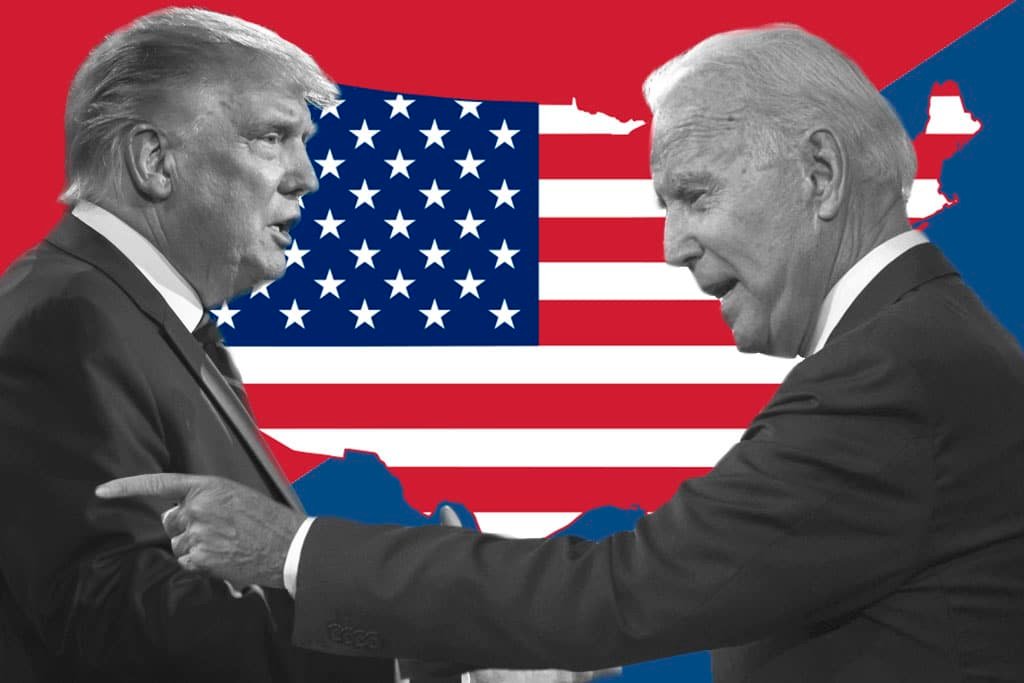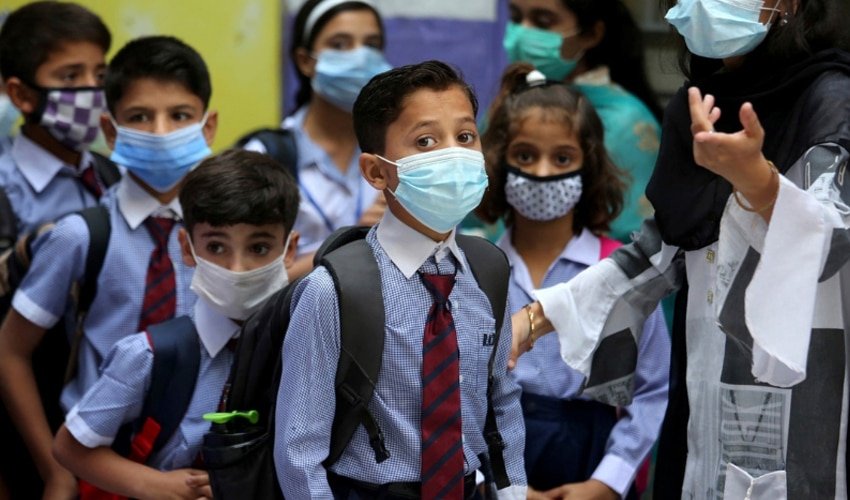WASHINGTON: Donald Trump has announced his victory in the US presidential election in his address to supporters at campaign headquarters.
In his speech, he made several promises, including making the borders secure to stop illegal immigration.
“We will make America safe, strong, prosperous, powerful, and free again,” Trump said in his address on Wednesday.
Though Trump is very optimistic about fixing issues and making the country great again, he will face several significant challenges inherited from the Biden administration when he assumes office as the 47th president of the United States.
Immigration
Upon taking office, President Biden, a Democrat, quickly reversed many of the Trump administration’s restrictive immigration policies. He halted the construction of Trump’s border wall, lifted travel bans targeting several majority-Muslim countries, and ended the “Remain in Mexico” programme that forced non-Mexican asylum seekers to wait in Mexico while pursuing their cases in the US.
However, shortly into his presidency, illegal border crossings surged, particularly among unaccompanied minors from Central America. This surge overwhelmed US border processing facilities and drew fierce Republican criticism.
In 2022 and 2023, illegal crossings reached record levels, with rising numbers of migrants from Cuba, Haiti, Nicaragua, Venezuela, and beyond. In response, Texas Governor Greg Abbott, a Republican, initiated a controversial program of bussing migrants to Democratic-run cities like New York and Chicago, which struggled to accommodate them.
Biden attempted to address the crisis through bipartisan legislation aimed at tightening border security. But after it failed in the Senate, Biden imposed a ban on asylum for most migrants crossing illegally in June 2023. This move was followed by a sharp decline in illegal crossings, helping to counter claims from Trump and other Republicans that Democrats supported an “open border.”
Despite political pressure, Biden created new legal pathways for hundreds of thousands of migrants and oversaw the restoration of the US refugee programme, which admitted more than 100,000 refugees in fiscal year 2024—the highest number in three decades.
Abortion Rights
One of the most significant shifts in American reproductive rights during Biden’s presidency came with the Supreme Court’s June 2022 decision to overturn Roe v. Wade, eliminating nearly 50 years of federal abortion protections. This ruling triggered a patchwork of state-level abortion laws, with more than a dozen states banning the procedure in most cases.
Biden strongly condemned the decision and directed his administration to take action to protect access to reproductive care. The Department of Justice issued guidelines to ensure access to emergency abortion care and defended the use of the abortion pill, mifepristone, in court.
While Biden’s administration made efforts to expand access to contraception through the Affordable Care Act, it faced setbacks in the courts.
The Supreme Court dismissed the administration’s challenge to strict abortion bans in Idaho and Texas, though it did win a major victory in June 2023 when the court rejected attempts to roll back the approval of mifepristone.
While Biden has personally grappled with his Catholic beliefs on abortion, defending reproductive rights has become a central pillar of his presidency. Democrats also made abortion rights a key issue in the 2022 midterm elections, and Vice President Kamala Harris became the first sitting vice president to visit an abortion clinic in March 2024.
Economy
Biden’s presidency has seen one of the strongest economic recoveries in recent history. Since the pandemic-induced recession, nearly 16.5 million new jobs have been created, with the unemployment rate consistently holding below 4%, marking the longest period of such low unemployment since the 1960s.
Gross domestic product (GDP) has grown at an average of 3.2% per quarter, and US household net worth hit a record $163.8 trillion.
However, much of this economic success has been overshadowed by inflation, which surged to its highest point in decades.
A mix of supply chain disruptions, labor shortages, and high consumer demand—fuelled in part by government stimulus programs—led to a sharp rise in prices.
By the summer of 2022, the Consumer Price Index had surged by 9.1% year-over-year, and consumer sentiment reached an all-time low.
While inflation has receded, many Americans still feel the sting of high prices, with surveys showing that a significant portion of the public continues to blame Biden and the Democrats for the economic difficulties.
Racial Justice
On his first day in office, Biden signed an executive order aimed at combating systemic racism, addressing police brutality, and alleviating poverty and inequities facing Black Americans and other communities of colour. However, progress has been slow, particularly in the area of police reform.
The George Floyd Justice in Policing Act, introduced in 2021 to address law enforcement practices and racial bias, has stalled in Congress.
Biden’s executive order in 2022 directed the Department of Justice to establish a national database of law enforcement misconduct, but the administration has yet to secure any major settlements in the cases of alleged police civil rights abuses.
On the economic front, Biden’s policies have helped bring Black unemployment to historic lows, while directing billions of dollars in loans to Black-owned businesses and investment in historically Black colleges and universities. Moreover, the administration has provided over $2 billion in aid to Black and other minority farmers who have faced discrimination.
Foreign Policy
Biden’s foreign policy has been marked by a series of ongoing global crises, including the wars in Ukraine and Gaza, and rising tensions in the Middle East.
Despite promises to restore US global leadership, Biden has struggled to resolve conflicts and maintain influence in key regions.
The most high-profile foreign policy challenge has been the war in Ukraine, which has raged for over three years, despite billions of dollars in US military aid. The conflict continues to have global implications, with Russia increasingly drawing support from China, Iran, and North Korea.
Biden has faced backlash at home and abroad for his unwavering support of Israel in its conflict with Hamas in Gaza, and his administration has been unable to prevent the growing influence of authoritarian powers such as Russia and China.
Meanwhile, the US has worked to mediate ongoing conflicts in Sudan and broker peace in the Middle East.
Energy Transition
Biden entered the White House with ambitious plans to address climate change by transitioning the US economy away from fossil fuels to cleaner, renewable energy sources. Key to his agenda was the creation of green jobs, decarbonizing the energy grid, and meeting ambitious climate goals.
While Biden has seen significant progress, including the passage of the Inflation Reduction Act (IRA) and the bipartisan infrastructure law, challenges remain.
The US is on track to reduce its greenhouse gas emissions by 32-43% by 2030, falling short of Biden’s original target of a 50-52% reduction. His administration’s attempts to end federal oil and gas leasing have also been stymied by court challenges, and US oil production has surged, largely on private lands in Texas and New Mexico.
However, significant investments in renewable energy, electric vehicles, and battery storage under the IRA have positioned the US to continue its transition to cleaner energy, creating jobs and fostering innovation in the green economy.















